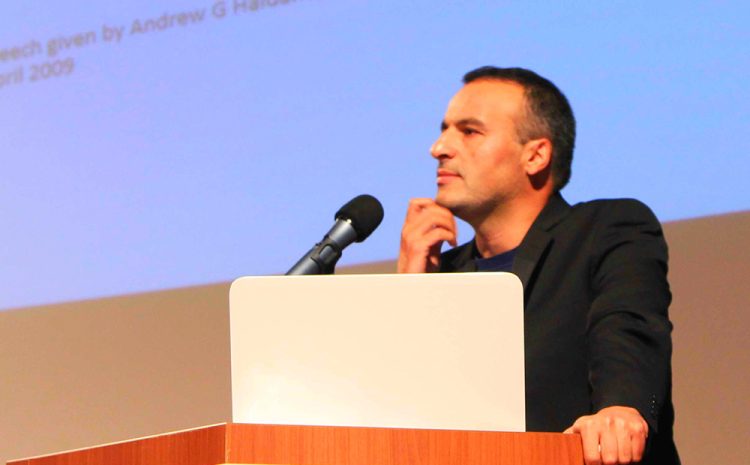
Power, Progress, and the Future of AI
On a recent visit to the University of Zurich’s Center for Economic Studies, Daron Acemoglu delivered an illuminating lecture on the transformative role of artificial intelligence (AI) and the broader implications of technological progress on global inequality and shared prosperity.
Having known Daron for over a decade, I can attest to his deep commitment to understanding and addressing economic disparities from my time at Oxford University and MIT. He played a pivotal role in shaping my second PhD thesis on Systemic Risk in European Banks, and his profound insights have impacted my academic journey. Daron Acemoglu is one of the world’s ten most cited economists and a recipient of the 2024 Nobel Memorial Prize in Economic Sciences, earning his doctorate from the London School of Economics. Currently, he serves as the Elizabeth and James Killian Professor of Economics at MIT.
Acemoglu’s message is urgent: we are at a critical juncture where the choices we make about technology will determine whether it exacerbates inequality or promotes a fairer world.
The Central Question: Who Benefits from Technology?
In his lecture, Acemoglu emphasized that while AI can enhance productivity, it is currently being developed in ways that concentrate power and wealth. Instead of empowering people and safeguarding privacy, AI is increasingly used for surveillance, behavioral monitoring, and manipulation. This direction raises significant concerns about inequality, both within and across nations.
He noted that automation risks displacing many workers, a significant focus of AI development. Countries like India, which rely heavily on offshore services, are particularly vulnerable as many support tasks may soon be automated. This global impact of AI underscores the need for collective solutions and inclusive forums where the voices of marginalized communities—especially those outside the U.S. and Europe—can shape technological governance.
Lessons from History: Technology and Inequality
Acemoglu’s research highlights a historical shift in shared prosperity. In the post-war era, wages across all education levels grew together, significantly improving living standards. However, since the 1980s, this pattern has broken down. Wage stagnation for lower-educated workers has persisted for decades, while highly educated professionals have seen continued gains.
According to Acemoglu, this divergence is not an inevitable result of technology but rather a consequence of weakened institutions and shifts in power dynamics. In contrast to earlier periods when labor unions and regulatory frameworks ensured that workers shared productivity gains, powerful corporations dominate today’s technological landscape with little accountability.
He offered historical examples to illustrate this point. During the early 20th century, companies like Ford introduced innovations that increased productivity and created new roles for workers. However, the recent wave of automation has focused more on labor displacement than task creation, contributing to rising inequality.
AI, Power, and Global Cooperation
A key theme of Acemoglu’s talk was the concentration of power in the hands of a few tech giants. He expressed concern over the economic dominance of companies like Google, Microsoft, and Apple, whose combined influence far exceeds that of historical monopolies like Standard Oil. This consolidation of power is not just economic but also social, as these companies shape information ecosystems and democratic institutions through their control of data and algorithms.
Acemoglu argued that AI’s development should not be framed solely through competition between the U.S. and China. Instead, he called for international cooperation to steer AI toward addressing shared challenges such as climate change, healthcare, and education. He warned that an AI arms race centered on artificial general intelligence (AGI) could hinder collaboration and heighten geopolitical tensions.
Alternatives to Automation-Driven Development
While automation is often portrayed as an inevitable path for AI, Acemoglu believes alternative approaches exist. He and his co-author, Simon Johnson, advocate for “machine usefulness” over “machine intelligence”—a vision where AI is designed to augment human capabilities rather than replace them.
This vision aligns with the work of early digital pioneers like Douglas Engelbart and J.C.R. Licklider, who saw technology as a tool to empower users. Innovations like the computer mouse, hypertext, and graphical interfaces were developed to enhance human productivity and creativity. Today, generative AI has the potential to serve a similar purpose by helping people access relevant information more efficiently. However, realizing this potential will require a shift in business models away from advertising and cost-cutting automation.
The Case for Effective Regulation
Acemoglu emphasized the importance of regulation in countering the negative externalities of AI and social media. Platforms like Facebook and X (formerly Twitter) have become the primary sources of information for millions but operate without the oversight that traditional media once had. He argued for regulations promoting transparency in algorithmic decision-making and limiting data monetization’s harmful effects.
At the same time, he cautioned against heavy-handed approaches that could stifle innovation. Instead, regulations should balance safeguarding users and enabling technological progress. Drawing parallels to the role of journalism in democratic societies, he stressed the need for a framework that ensures social media platforms adhere to ethical standards.
Can Universal Basic Income Solve Inequality?
The idea of universal basic income (UBI) has gained traction as a potential response to job displacement caused by automation. However, Acemoglu identified several challenges with this vision. First, political support for large-scale wealth redistribution is weak, and wealthy tech leaders have shown little interest in advocating for UBI. Second, even if consumption inequality were reduced, social status and purpose disparities could persist. Acemoglu argued that meaningful work remains essential for social cohesion and personal fulfillment.
Rather than abandoning the labor market, he called for efforts to steer AI development toward creating new tasks and opportunities that allow diverse groups to contribute to society.
Hope for a More Equitable Future
Despite the challenges, Acemoglu remains optimistic that technological change can be redirected. He pointed to examples like the renewable energy sector, where targeted investments and public demand have driven innovation and cost reductions. By applying similar strategies to AI, societies can foster technologies that empower workers, enhance productivity, and promote shared prosperity.
Ultimately, Acemoglu’s lecture underscores the importance of democratic oversight and collective action. As he stated, “We are not passive agents in this process. Our choices about institutions, policies, and power structures will shape the direction of technology and its impact on our lives.”
This message resonates deeply with those who have followed Acemoglu’s work. His dedication to addressing economic inequality and fostering institutional reform inspires scholars and policymakers worldwide. His book Why Nations Fail remains a cornerstone for understanding how nations can create more equitable and prosperous futures—a more relevant vision than ever in the age of AI.
Final word
The direction of technological progress is not predetermined. Societies can shape technology through institutions, policies, and collective action. By prioritizing human empowerment, shared prosperity, and democratic oversight, we can harness the potential of AI and other innovations to create a more equitable and just future.
The challenge is immense, but the stakes could not be higher. Power and progress must go hand in hand to build a world where everyone can benefit from technological advancements.






5 replies on “Power, Progress, and the Future of AI”
The Real Person!
Author Yusuf acts as a real person and passed all tests against spambots. Anti-Spam by CleanTalk.
👍 👍 👍
The Real Person!
Author J acts as a real person and passed all tests against spambots. Anti-Spam by CleanTalk.
❤️ 👍 👍 👍 👍
The Real Person!
Author Tom James acts as a real person and passed all tests against spambots. Anti-Spam by CleanTalk.
Excellent point
The Real Person!
Author alex acts as a real person and passed all tests against spambots. Anti-Spam by CleanTalk.
Good
The Real Person!
Author Alen Jones acts as a real person and passed all tests against spambots. Anti-Spam by CleanTalk.
❤️ ❤️ ❤️ ❤️ ❤️ ❤️ ❤️ ❤️ ❤️